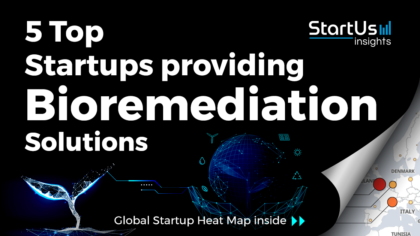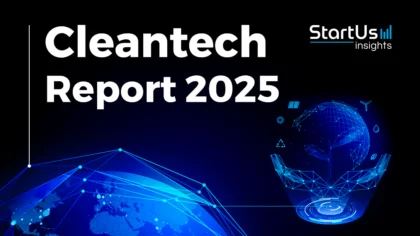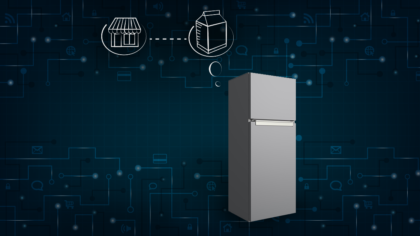Accelerate Productivity in 2025
Reignite Growth Despite the Global Slowdown
Staying ahead of the technology curve means strengthening your competitive advantage. That is why we give you data-driven innovation insights into technologies that advance sustainability. This time, you get to discover 5 hand-picked startups developing bioremediation solutions.
Global Startup Heat Map highlights 5 Top Bioremediation Solutions out of 144
The insights of this data-driven analysis are derived from the Big Data & Artificial Intelligence-powered StartUs Insights Discovery Platform, covering 2 093 000+ startups & scaleups globally. The platform gives you an exhaustive overview of emerging technologies & relevant startups within a specific field in just a few clicks.
The Global Startup Heat Map below reveals the distribution of the 144 exemplary startups & scaleups we analyzed for this research. Further, it highlights 5 startups that we hand-picked based on criteria such as founding year, location, funding raised, and more. You get to explore the solutions of these 5 startups & scaleups in this report. For insights on the other 139 bioremediation solutions, get in touch.
Amplytica advances Microbial Remediation
Industrial effluents consist of inorganic and organic chemicals that are toxic to the environment and human health. Conventional physical, chemical, and oxidation processes for the treatment of these pollutants are time- and capital-intensive as well as generate toxic byproducts. On the other hand, bioremediation offers a more efficient means to degrade harmful substances naturally to improve ecosystem quality. That is why startups develop bioremediation solutions that reduce environmental damage due to manufacturing and other onsite operations.
Amplytica is a Canadian startup that offers microbial remediation for soil and water. The startup tracks the composition, abundance, and function of microbes and fungi that affect remediation processes in contaminated sites. It then determines optimal parameters such as the amount of additive and application timings that positively influence the remediating organisms. This improves the contaminant sequestration rates and reduces the remediation costs.
ALGAESYS enables Carbon-Negative Water Recovery
Traditional wastewater treatment plants (WWTPs) contribute to greenhouse gas (GHG) through direct and indirect emissions. To tackle this, startups provide biological remediation methods for wastewater treatment that demand little or no energy inputs, thereby reducing emissions. This allows waste management and sewage plants to significantly reduce their contribution to climate change.
ALGAESYS is an Italian startup that develops a carbon-negative, energy-positive water recovery system for small communities. The startup employs naturally occurring micro-algae and phototrophic bacteria to remove pollutants and other toxic substances, such as nitrogen, phosphorus, microplastics, and heavy metals. It establishes a colony of algae in rotary logs that induce optimal conditions to maximize their efficacy in breaking down and oxidizing pollutants. Besides, ALGAESYS’ system utilizes solar energy, instead of electricity, through the phototrophic bacteria for treatment, thereby reducing its carbon footprint.
ekolive provides Soil Bioremediation
Strict environmental policies need industries to remediate their effluent discharges before releasing them into water bodies. Similarly, there are rules to ensure land rehabilitation after mining or such land-intensive activities. However, conventional treatment methods for remediating land and water bodies do not offer high success rates and need huge investments. Due to this, companies now use bioremediation for water and land restoration. Since the bioremediation agents multiply over time without any resource inputs, the project managers only need to ensure a thriving environment for the microorganism, thus reducing maintenance and operational costs.
Slovakian startup ekolive offers bioremediation for soils contaminated due to mining, bombing, and military use. The startup’s solution, microlive, is a mixed consortium of bacteria. Functioning as a bioaugmentation agent, it resists non-sterile industrial conditions, cyanide, and heavy metals. In addition, the startup makes ekocomplex, a biostimulation agent that speeds up soil remediation. Further, ekolive offers a proprietary bioleaching agent to extract metals. The startup’s solutions for biological remediation allows site owners and industries to comply with environmental regulations and ensure the safety of nearby ecosystems.
LiaMarinha offers Sustainable Water Management
Aquatic ecosystems are sensitive to external stresses such as industrial effluents and chemical wastes. These pollutants reach the marine water through freshwater bodies like rivers and lakes, polluting them. This also affects human health conditions as the global population rely on these freshwater sources for daily activities. To tackle this, startups offer bioremediation solutions that break down industrial runoffs and toxic chemicals into harmless byproducts to improve aquatic ecosystem quality.
LiaMarinha is a Brazilian startup that provides sustainable water management. The startup applies bioremediation through Estação de Tratamento Natural (ETN), a treatment solution that comprises floating islands and filter barriers for sanitary and industrial effluent treatment that enables zero-energy decontamination with minimum maintenance. In addition to bioremediation, LiaMarinha offers aquatic environment decontamination that further improves carbon sequestration.
BIOALT develops a Bioremediation Vaccine
Biological soil remediation uses microbes or bacteria to degrade organic contaminants and bind heavy metals to reduce their bioavailability. This is favorable for reclamation of lands where toxicity is high due to industrial activities and agricultural lands with low organic content due to intensive chemical application. To this end, startups develop soil bioremediation solutions tailored to industrial and agro applications, thereby improving the carbon-sequestering ability of the soil.
Polish startup BIOALT provides BACTREM, an organo-mineral soil bioremediation vaccine. It uses aerobic saprophytic bacteria strains from contaminated areas to facilitate soil remediation along with a medium and carrier that promotes bacteria health. BACTREM is usable in heaps and landfills contaminated with aromatic hydrocarbons, nitrous compounds, and heavy metals. It also works under aerobic and relatively anaerobic conditions to support biodegradation during composting, in-home sewage treatment, and in soil for cultivation.
Discover more startups
Startups such as the examples highlighted in this report focus on river cleaning, soil health, as well as microbial remediation. While all of these technologies play a major role in advancing sustainability, they only represent the tip of the iceberg. To explore more bioremediation technologies, simply get in touch to let us look into your areas of interest. For a more general overview, you can download one of our free Industry Innovation Reports to save your time and improve strategic decision-making.



![Explore the Top 10 Waste Management Industry Trends & Innovations [2025]](https://www.startus-insights.com/wp-content/uploads/2025/06/Waste-Management-Industry-Trends-SharedImg-StartUs-Insights-noresize-420x236.webp)




